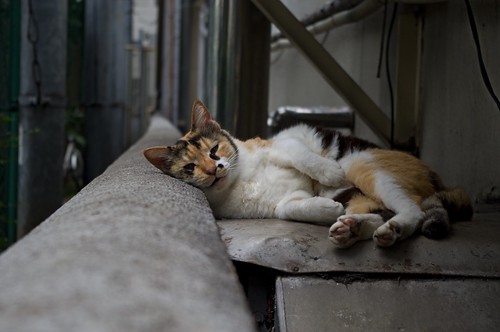A Story
In the future, I hope to share my experiences living with anxiety as a writer. The best way to begin our first episode is with a story.
In the fall of 2005, I was taking the second exam in my favorite class, England from 1066 to 1688. I'd been studying hard, but it hadn't felt like studying because the stories of medieval England, as told by my engaging professor, had sparked my imagination. It should have been an easy, fun exam (if there is such a thing): a few paragraphs describing Joan of Arc, the War of the Roses, the dramatic death of Richard III and the reign of Elizabeth I.
But something happened that I had not expected: a melt down. (I mean, why on Earth hadn't it happened in that awful statistics class?) I remember sitting there in the classroom, quiet but for the sounds of other students' pens and shuffling papers, and suddenly feeling all the knowledge I had packed into my brain evaporate, leaving my head empty... making plenty of room for panic. I found myself completely unable to write - paralyzed and ashamed and terribly confused.
What a blessing it was that Professor Carole caught sight of me turning a bright shade of crimson, biting down on my hand to stifle any sounds as the tears streamed down my face. She gently coaxed me out of my chair and into the hallway. "Go home and rest," she said. "You can take the exam when you're feeling better. There's nothing to be ashamed of."
This was just one of many stories I can tell you from my life that fell into place when I was diagnosed with Generalized Anxiety Disorder (GAD) and Social Anxiety Disorder (SAD) in college. I knew I'd been an excessively worried and weepy little girl and teenager, but no one had ever been able to tell me why. These days I can tell you plainly: my brain produces too much serotonin. I am not overly sensitive or twitty. It's the way I was made.
Writing and Anxiety
As a writer, this self-knowledge has been extremely helpful, especially as the writer's path is by nature precarious. Having set out to publish a novel and knowing that it might take years for this dream to be achieved, I know it is not for the faint of heart. Though early in the process, I have been beset by anxious thoughts, an internal Sturm und Drang of doubts and fears mixing with the desperate desire to get my story out there. As you know, the direct way for an unpublished writer to begin that journey is to appeal to literary agents via (hundreds of) query letters - a subjective process that can either make or break you. Arguments for practicality and "common sense" would ask, understandably, why on Earth I'd choose this path when it is 1.) uncertain and an indirect path to "success", and 2.) likely to expose me to more anxiety-causing situations. In other words, isn't writing the stupidest thing you could do?
Far from it. Throughout my life, but especially now in my late twenties, I have realized how much writing has been a natural survival mechanism. My days are better and calmer when I stick to a self-prescribed regimen of at least 2,000 words per day - 2,000 words most likely spent world-building in my novels. Somehow said activity balances the chemicals in my brain. I equate this to having a C-drive cleaner on your PC; writing gets rid of the chemical junk and allows my brain to function better. Writing is the one thing I know I can rely on for solace and steady ground. It is not simply a fun little hobby I picked up in childhood and was never quite able to grow out of like a child and a beloved stuffed animal.
Writing is not only an enjoyable activity, but a lifestyle. It is something that I love, something that brings order to my otherwise chaotic world. The more I learn about craft, the more I learn about myself, and the more I want to bring my stories to the world to share with other people. For these reasons, the uncertain road to publication becomes less daunting and more of a necessary learning experience. That does not mean my anxiety will ever fully go away. It does mean that facing anxiety-provoking situations is a necessary risk (or self-challenge) for the sake of art.
Again, I think of what Stephen King said: art is a support system for life, not the other way around. He was talking about a desk, but this can be applied more broadly. Art is medicine, the antidote for situations out of our control. Let's face it: much of the human experience is out of our control. Finding out how to make that art work beautifully is our most important quest. No one else can take that journey for you.
Plain Facts About Anxiety
- Anxiety is characterized by exaggerated worry and tension, though there might be nothing specific to provoke it. A person with Generalized Anxiety constantly anticipates disaster, or a combination of any number of snowballing crises such as health, money, family or job-related stresses.
- Anxiety is caused by an imbalance of neurotransmitters (messenger chemicals) in the brain.
- Anxiety disorders are chronic. They are not the result of someone simply "not dealing" with their problems. An anxiety disorder is about how someone was made, not about their choices. Seeking (or not seeking) treatment in counseling and in medication is a choice.
- Telling an anxiety sufferer to "get over it" is unhelpful, and might make his or her anxiety worse.
- Anxiety is hereditary.
- Anxiety is often closely connected to depression.
- Twice as many women as men suffer from anxiety.
- In brief, methods of treatment can include: 1.) Medication to balance out the chemicals, 2.) counseling, which will give you the tools to change how you approach your anxiety, your triggers and your mechanisms of coping, 3.) exercise, 4.) eating right and staying hydrated, 5.) get plenty of sleep, 6.) reducing the time spent on social networking sites.
Sources
http://www.anxietydisordersfoundation.org
http://health.howstuffworks.com/mental-health/anxiety





